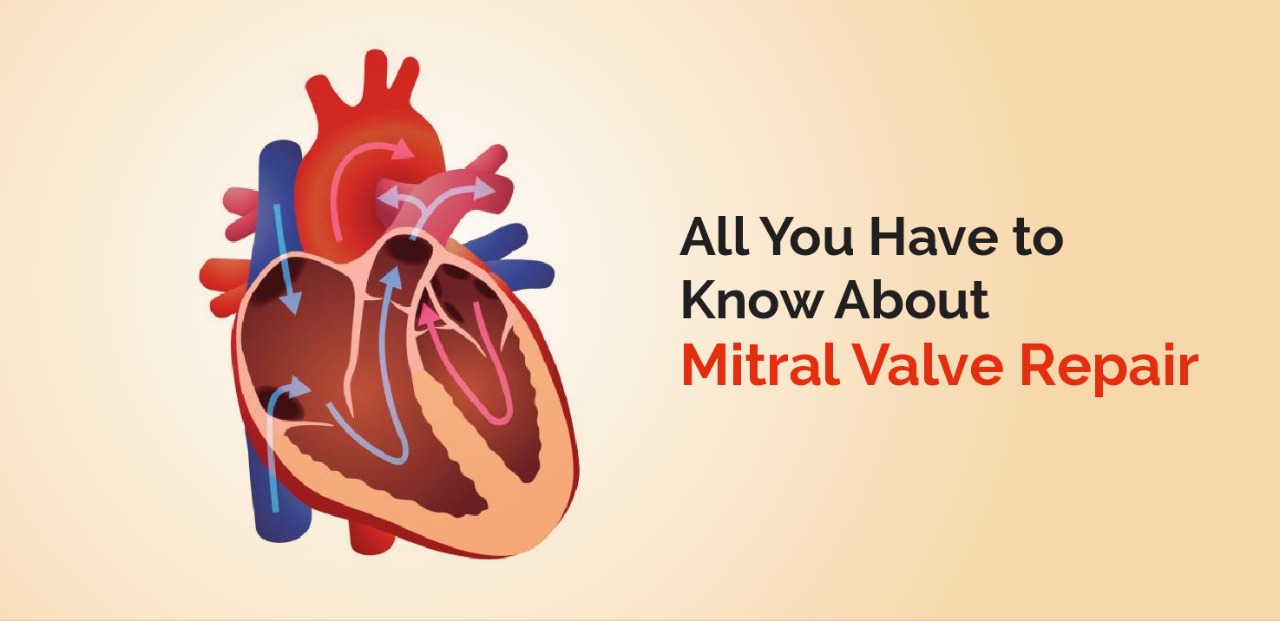

Healthy habits are your heart's desire. So, do your part and care for your heart.
Mitral valve disease is an acquired disease. When your heart's mitral valve doesn't close properly, it takes a bit toll on your health. You may feel tired just walking from the couch to the fridge. This condition is called mitral regurgitation or a leaky mitral valve. You will need a Mitral Valve Repair/ Mitral Valve Replacement Surgery for this condition. This is a unique disease in cardiovascular medicine and surgery because we can completely cure and repair the mitral valve properly functioning. That valve will then close your heart, squeeze, and allow blood to eject out to your body. When the mitral valves break, they can't close, and half of the blood runs back up into your lungs instead of moving efficiently into the body, and that's the heaviness. You feel shortness of breath when you try and walk or do things with a leaky mitral valve. People with a leaky mitral valve struggle with their day-to-day living. Their lungs are filling up with fluid, which makes breathing and moving difficult. They may feel tired, weak, and have swollen ankles. In case of these symptoms, one needs to consult a cardiologist through Assurance dedicated support and medical treatment.
Also, do spend a couple of minutes taking the comprehensive screening test on our website. This test allows us to understand your healthcare needs better.
Mitral Valve Replacement Surgery
For years the only way to treat a leaky mitral valve was through open-heart surgery. But for people who are elderly or sick, it is too risky and simply not an option. But in the past 15 years, a procedure has been introduced called transcatheter mitral valve repair, which uses a mitral valve repair device. A tube is inserted through a puncture in the right leg, transporting the mitral valve repair device to the heart. Surgeons place the Mitral Valve Repair device, which looks like a clip onto the mitral valve. The two arms of the hook grasp the opposite leaflets of the mitral valve, pulling both of them closer together such that the valve stops leaking. We will know if it's working and make adjustments if needed.
Quick recovery is one of the amazing things about this Mitral Valve Repair procedure. After your mitral valve is recovered, the recovery is usually very rapid, and you may find that you have a lot more energy. After transcatheter mitral valve repair, the patients are often up and walking the same day. You can resume all your normal activities after six weeks.
If you have a severe problem with the mitral valve in your heart, your doctor may recommend a Mitral Valve Replacement if it cannot be repaired. Before the Mitral Valve Replacement procedure, an intravenous line will be started and may be given antibiotics through the IV to decrease the chance of infection. You'll be given general anaesthesia to make you unconscious and pain-free during the procedure. A breathing tube is inserted through the mouth and down your throat to help you breathe during the surgery. The surgeon will make four or five small insertions on the right side of your chest, and the assistant will insert a special camera called an endoscope. You will be placed on a heart-lung machine which will see the functions of your heart and lungs while your heart is stopped for the operation.
The surgeon will begin the procedure on the heart by making an incision in your left atrium to get to the mitral valve. All your mitral valve attachments will be cut, and the valve will be removed. The damaged mitral valve will be replaced with an artificial mechanical valve. This mechanical mitral valve lasts a lifetime; however, they require lifetime blood thinner medicines for the rest of your life. Sometimes the mitral valve can also be replaced with a valve made from human or animal tissues. Once the new valve is in place, the surgeon will restart the heart's beating and remove all the attachments of the heart-lung machine. The skin incisions are closed with stitches, staples, surgical glue or skin closure strips.
Assurance by Nano Health provides a Disease Management Program for heart care. Our Al-initiative helps timely identification, diagnosis, and treatment by pairing you with the proper care providers.
Our Disease Care Management Programs include:
- Regular interactions with your health coach for treatment adherence.
- Periodic doctor consultations to ensure effective treatment.
- Routine blood tests to track the progress and improvements.
Know your Health Risk by screening the diagnosis based on your responses in the intensively defined healthcare screening forms, which profile your disease risk and suggest diagnostic testing, doctor or dietician visits.
Book an appointment with healthcare specialists from anywhere and anytime to get carefully reassessed to start your healthy lifestyle.
Visit our website nhassurance.com and book an appointment today!
Secure your health with Assurance By Nanohealth.
